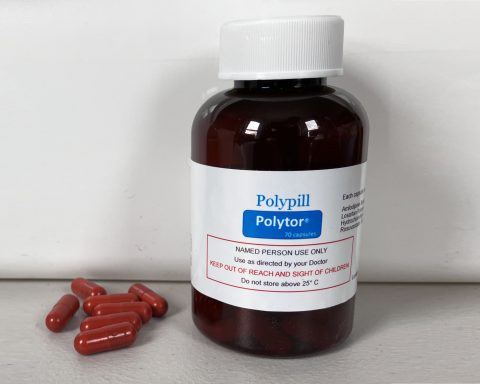
“One cannot live in the afternoon of life according to the programme of life’s morning: for what was great in the morning will be of little importance in the evening, and what in the morning was true will at evening have become a lie.”
Carl Jung, The Structure and Dynamics of the Psyche.
The identity of so many GPs is tied up with their role as a clinician – they have spent their early years working towards achieving this goal and their middle years learning, consolidating, and reaching the expert stage of their career. Along the way they will have learnt many other skills – they may also be employers, managers, mentors, negotiators and educators.
“Normal’ retirement for the current cohort of retiring GPs, who are part of the 1995 pension scheme, is 60 years. At an early stage many will have been planning for their retirement at that age, encouraged by their financial advisors.
For many of them, ‘normal’ General Practice was working 8-10 clinical sessions a week plus on call. In 1997, 87% of GPs were contracted to work full time.1 Having done this for thirty years or more many are ready to leave frontline patient care. Another factor is ‘The job moves on and so do we’ as stated by Ed Warren in his article on retirement.2
Beyond the coalface.
This does not mean that some GPs may not want to contribute to primary care in non clinical ways. Life expectancy has increased since they first qualified, and when they reach 60 years they may well find they want to pursue other roles.
Former GPs may want to move along a different career pathway.
Former GPs may want to move along a different career pathway not because they are ‘burnt out’ but because they have reached the pinnacle of their GP career and want a new focus, new challenges and a different pace of life.
However the instant they retire from clinical work they encounter barriers. The system of appraisal and revalidation has ensured that to maintain one”s licence one has to continue to work clinically. Many nonclinical roles still require a ‘licence to practice’ This is a reason why many GPs continue to work clinically for a token one session a week. This is fine for those who wish to do so but the system currently shuts out those who feel strongly that this does not fit in with their idea of being a family doctor.
The coalface GPs who have spent many years working intensely are the most hard done by when they retire clinically as they have no established links with medical schools, the RCGP or NHS organisations to continue when they drop their clinical role.
The word retired is so tied up to GPs clinical role.
GPs who stop clinical work are automatically referred to as ‘retired’. In fact a GP’s identity is often so tied up with working in a practice that they automatically refer to themselves as ‘retired’ even when they continue doing locum work or non clinical work. Indeed doctors in later career who reduce their clinical sessions are described as ’semiretired’ whereas a First 5 or mid career GP would be referred to as a ‘portfolio GP’
The word ‘retirement’ itself has been challenged. “The word retirement is anathema to most baby boomers, whose high powered careers have been core to their whole identity. We need to harness and leverage the skills and energy of doctors at the expert mastery stage of their careers”.3
We need to harness and leverage the skills and energy of doctors at the expert mastery stage of their careers.
Opportunities with Covid-19 breaking down barriers.
The response of retired GPs to the Covid 19 pandemic and their return to clinical, educational and peer support work has demonstrated that there is a vast well of experience that can be utilised post Covid. Initiatives are needed now to specifically utilise the many transferrable skills of GP returners both clinically and in nonclinical roles within primary care teams and organisations. Job advertisements should only include an automatic licence to practice requirement for those doing hands on clinical care. Relevant job experience would be a core requirement for such posts. Here are just a few suggestions for starters:
- Credibility for non clinical roles should be provided by many years of clinical experience, buttressed by professionalism, ability to learn new skills and competence in keeping up to date with whatever role is pursued.
- What if Primary Care Networks were given the flexibility to use the Additional Roles Reimbursement Scheme to employ senior ex GPs? Practices could put forward work they haven’t been able to prioritise but which needs doing.
- Are any medical schools having difficulty covering any areas of undergraduate de-velopment?
- Could the mentorship programme now available to GP Fellows be built upon using the exGP workforce so that all GPs could have support?
- What could be the role for ex GPs in training nursing home and reception staff? Could they help bridge the secondary/primary care culture gap?
- What if research practices and academic departments of general practice could use this skilled resource?
Is anyone out there listening?
References
1. RCGP Information sheet General Practitioner workload August 1999
2. Warren E. Retirement and managing the ‘peridoctorpause’ Br J Gen Pract 2020 https://bjgplife.com/retirement
3. Bhatti N, Viney R .Transforming the lives and careers of senior doctors, retaining and harness- ing skills and enthusiasm in difficult times. BJGP 2017 https://doi.org/10.3399/bjgp17X692813
Featured photo by Nikita Kachanovsky on Unsplash









Excellent article. I agree whole heatedly as a 63 year old retired GP. I am still working but will loose credibility once I have to leave the register. when in practice, I could take on specialist roles as long as I made sure I was competent and could show this. Now no longer seeing patients, I continue to maintain my competence in the specialist fields which I am interested in, but have no way to gain credibility in them without doing some really basic training as if I knew nothing, or taking a multi-guess exam which covers much which is of no use to me in my present roles. Surely we could have supervision from clinicians with higher qualifications or others and appraisal relevant to our present roles. I know GPWSIs in dermatology who have to do sessions in GP which turn into derm sessions because the doctors taking them on recognize their value, but in no way keep them competent in GP IMHO. The waste of clinician resource is massive, and there is a need. Thank you Mona for such an important article.
A very timely article thank you. Let’s hope people are listening and can act before so many skills are lost. Of course expansion of non clinical roles would also be attractive to later career GPs seeking a more varied portfolio of work rather than giving up clinical work entirely.
Yes, thanks Mona. I think this issue is very timely. Perhaps a bit late for some. I am 66 and have been away from clinical work for nearly seven years. Thankfully, I have been able to continue as an appraiser, the ‘formative’ aspect of which work I enjoy doing. It seems especially important as we restart the process now after seven months break and the onus being on the appraiser to elicit important issues for each doctor and offer support and guidance to address them. However, when I did cease clinical work, having devoted many years as a GP Trainer and also a GP Tutor, I contacted our local medical school to offer my time and experience in any way they might choose to use, to learn that, without a clinical role, I was no use to them. Similarly, following the ‘recall to arms’ recently and the return of the licence to practice, I found that a ceiling of five years was in place so, if over five years since clinical practice, the only roles available were pretty menial. So, good on you!
Thank you for this article, Mona
It contains several very pertinent points and potential opportunities, which your summary presents well.
Continued and progressive clinical and practical competence is obviously important, but so are the golden threads of self-awareness, communication skills, reflective practice etc. As mentioned in the article, the opportunity for involvement early in medical education is significant.
At this time in particular, personal and professional support and mentoring (for the wider workforce), seems crucial.
Hopefully your case for using the skills and experience of GPs later in their careers, and beyond, will be carefully considered by a wide audience
Really good article Mona. As someone now 13 years from the clinical coalface, it is a bit too late for me but let’s hope that your ideas can be adopted and promoted. There is so much experience and wisdom going to waste because of the need for reaccreditation.